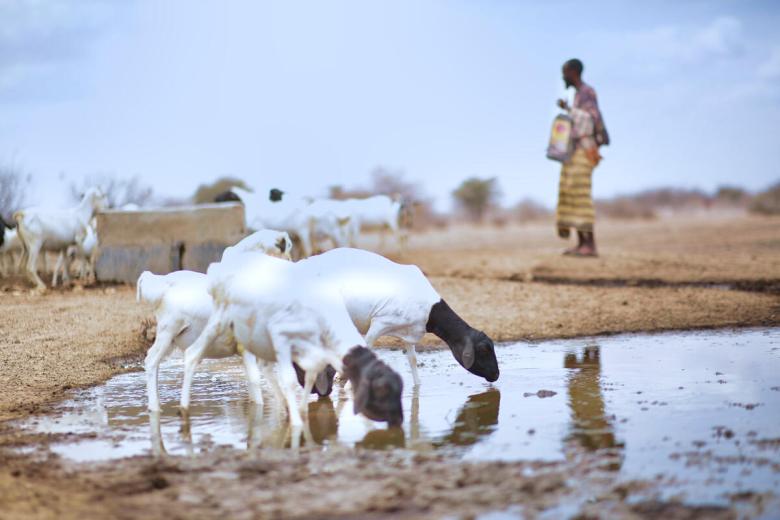
By Jeff Kapembwa
THOUSANDS of climate change campaigners converged in the Kenyan Capital, Nairobi, on Monday, raising voices over the impact of the crisis globally, as host leader William Ruto calls for financial and technical support to mitigate the impact.
President Ruto notes that while Africa and other world leaders were lobbying for lasting and durable solutions – financially or materially, the devastation of the impact has heightened and is eating into countries’ Gross Domestic Product (GDP)averaging 5-15 percent per annum.
President Ruto, not mincing his words, regretted the failure of developed countries’ delay to release the pledged US$100 billion in mitigation following unrelenting emissions from their greenhouses, a resource needed in loss and damage to compensate for lost economic growth and the environment.
Addressing delegates at the first climate change summit that had attracted various Heads of States, dignitaries, and other climate change campaigners within and beyond Africa including United Nations Secretary-General, Antonio Guterres, President Ruto raised eyebrows on how Climate change is “relentlessly eating away” Africa’s economic progress.
With no immediate solution in place for financial or material-mitigation initiatives, President Ruto warned against complacency and that it is time to brainstorm and hold a global conversation on how to resort and encourage carbon tax on polluters, who apparently fail to compensate for their uncouth acts, arguing: “Those who produce the garbage refuse to pay their bills,”
Regrettably, Africa contributes a paltry 4% to global emissions, yet it’s over 3 billion people are victims of the crisis, which has cost the continent environmental and economic growth as revenue losses average 15% in GDP growth every year, a source of concern and deep frustration as no solution is in sight.
There is a greater need to promote carbon tax, as a revenue measure to recoup what is being lost as the world awaits belated responses towards the loss and damage compensation, which has been delayed since the Conference of Parties (COP) 28.
The Pan African Climate Justice Alliance-housed in Kenya regretted the unfulfilled actions by the developed nations to compensate for the losses incurred by affected countries which they have duped for as long as time can estimate.
It is time Africa and other climate change campaigners spoke in unison. Little or nothing has been directed and released for Africa’s rebuild and: “This is our time,” its chairperson, Mithika Mwenda says.
More than US$83 billion in climate financing was given to poorer countries in 2020, up by 4 percent from an earlier disbursement, though still fell short of the $100bn annual goal set in 2009 hence the need for Africa to initiate a carbon tax to raise own resources, interest groups, say.
The annual flow of climate assistance to the continent represents a tenth or less of what is needed and a “fraction” of the budget of some polluting companies, with Power Shift Africa calling for the unlocking of resources for Africa to maximize alternative energy and rejuvenate itself from climate change shackles.
“We have an abundance of clean, renewable energy, and it’s vital that we use this to power our future prosperity. But to unlock it, Africa needs funding from countries that have gotten rich off our suffering,” Mohamed Adow of Power Shift Africa.
United Nations Secretary General Guterres regretted the ‘unbaiting and scorching effects of climate change globally and called for remedial action to respond to deadly climate extremes. There is a greater need for far greater climate ambition, with countries hitting fast-forward, and massively accelerating action to limit temperature rises and impacts.
He appealed to the ‘financial big guns’ and large emitters of gases, the G20 countries, responsible for 80 per cent of the emissions meeting in Delhi, India to act responsibly in redressing the “Mess they have created”.
“Developed countries must commit to reaching net-zero emissions as close as possible to 2040 — and large emerging economies as close as possible to 2050, with support from developed countries to do so.”
The UN chief advocates for a breakaway from the world’s addiction to fossil fuels and invests in a just and equitable transition.
It is envisaged there will be a global transition and exit coal by 2030 for OECD countries — and by 2040 for the rest of the world –though it needs ambitious renewable energy goals in line with the 1.5 degree limit.
The UN envisages the dawn of affordable electricity to everyone on earth — particularly in Africa — while simultaneously reaching net-zero electricity by 2035 in developed countries and 2040 elsewhere-though all targets need climate justice.
Developed countries are tasked to devise and present a clear and credible roadmap to double adaptation finance by 2025 as a first step towards devoting at least half of all climate finance to adaptation.
There is a greater need for developed nations to ensure they fulfil the pledged but belated $100 billion a year to developing countries for climate support, and fully replenish the Green Climate Fund.
All countries were challenged to operationalize the loss and damage fund proposed at COP28 this year.

can you take diflucan and flagyl together
Insightful piece